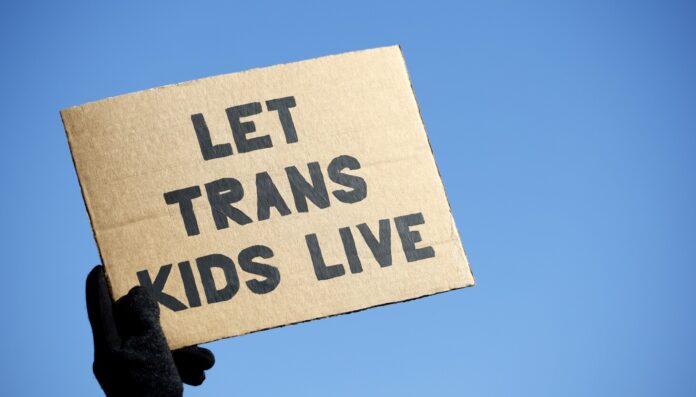When I think about the future, I think about L.
That’s the pseudonym her family used in a 2021 court filing I wrote about when I was an education reporter in Virginia. Her story was included in a brief in support of school policies to protect transgender students, then under fire from conservative Christian organizations.
She knew at a young age. L started describing herself as a girl when she was in preschool and kept asking her parents, “When do boys become girls? When do you get to switch?”
I cried while writing the story. She reminded me of myself — I said similar things when I was in preschool and kindergarten. With a supportive family, medical care and safe school environment, she would have so many opportunities that I didn’t, I thought.
But now, her future is up in the air as we await a ruling from the U.S. Supreme Court.
During oral arguments in United States v. Skrmetti on Dec. 4, the court’s conservative justices seemed reluctant to block Tennessee’s ban on gender-affirming care for minors, including puberty blockers and hormone replacement therapy.
Justice Samuel Alito questioned the idea of treating gender dysphoria in children, a clinical diagnosis that’s the basis for gender-affirming health care like hormones. Does it really reduce suicidality?
For those of you who haven’t felt it yourself, let me tell you about the feeling that has haunted me my entire life.
It’s not about being “born in the wrong body.” This is my body. But it has always felt out of control.
As a child, I described myself as a “bad boy.” I wasn’t like the kids around me — I hated wearing boy’s clothes; my friends were mostly girls; I wanted long hair. I’d stand in front of the mirror after baths and try as hard as I could to imagine myself with long hair, a different face, without the parts that I was told made me a boy.
After I was kicked, punched, slapped, ostracized, chastised, teased and bullied, I learned to repress it. Suck it up, buttercup.
Instead, I grew up intensely depressed, anxious, suicidal and dissociated as I tried to distance myself from my body and the world around me.
Those symptoms of complex trauma played a role in my own suicide attempt — and they still haunt me every day.
Anti-trans discrimination is real
Even though I knew I was trans and that pretending to be a man was making me miserable, I put off transitioning for years because I was scared of the discrimination I would face.
During oral arguments, Justice Amy Coney Barrett questioned the existence of historical “de jure” anti-trans discrimination — that is, discrimination by law.
What about L, whose family moved so she could go to kindergarten and use the girl’s restroom? The policy guidelines that her family supported ultimately were rolled back by Virginia Gov. Glenn Youngkin. What about Gavin Grimm, another student I wrote about, who sued Gloucester County Schools for forcing trans students to use a separate bathroom?
Last month, I went to Florida on a reporting trip, where it’s a crime for me to refuse to leave a women’s bathroom in certain spaces if I am asked to by a government employee. In Ohio, one of the states I drive through on the way to visit my parents, it’s illegal for me to use a women’s restroom at schools and universities. The last time I used a men’s restroom in Ohio, all of the men stood outside and waited for me to leave — but that doesn’t matter according to the law.

Sun-Times Audience Engagement Specialist Ellery Jones types on her laptop last month while riding the inaugural run from Chicago to Miami of Amtrak’s Train 41, the Floridian.
Chase Strangio, the first openly trans attorney to argue a case before the Supreme Court, pointed Barrett towards the country’s extensive history of anti-crossdressing laws. Until 1973, it was illegal in Chicago for a person to wear clothes associated with another gender “with the intent to conceal his or her sex” in public.
This case is about much more than bathrooms, birth certificates or even medication. This is about the freedom to choose what happens to your body, self-determination for trans people — and a better life for trans children everywhere.
No matter what the justices decide in this case, transphobia is all around me: the woman who was assaulted on the bus near my house, the slurs that I’ve had shouted at me on the street and online, the long list of Black trans women killed in Chicago, a conservative commentator declaring opponents will not stop until “trans ideology is entirely erased from the earth” on the steps of the U.S. Supreme Court.
I can fend for myself. But who will fight for my community? Who will fight for trans children?
Ellery Jones is an audience engagement specialist at the Sun-Times.
Want to write a letter to the editor or an op-ed? Check out our guidelines.
Get Opinions content delivered to your inbox. Sign up for our weekly newsletter here.
